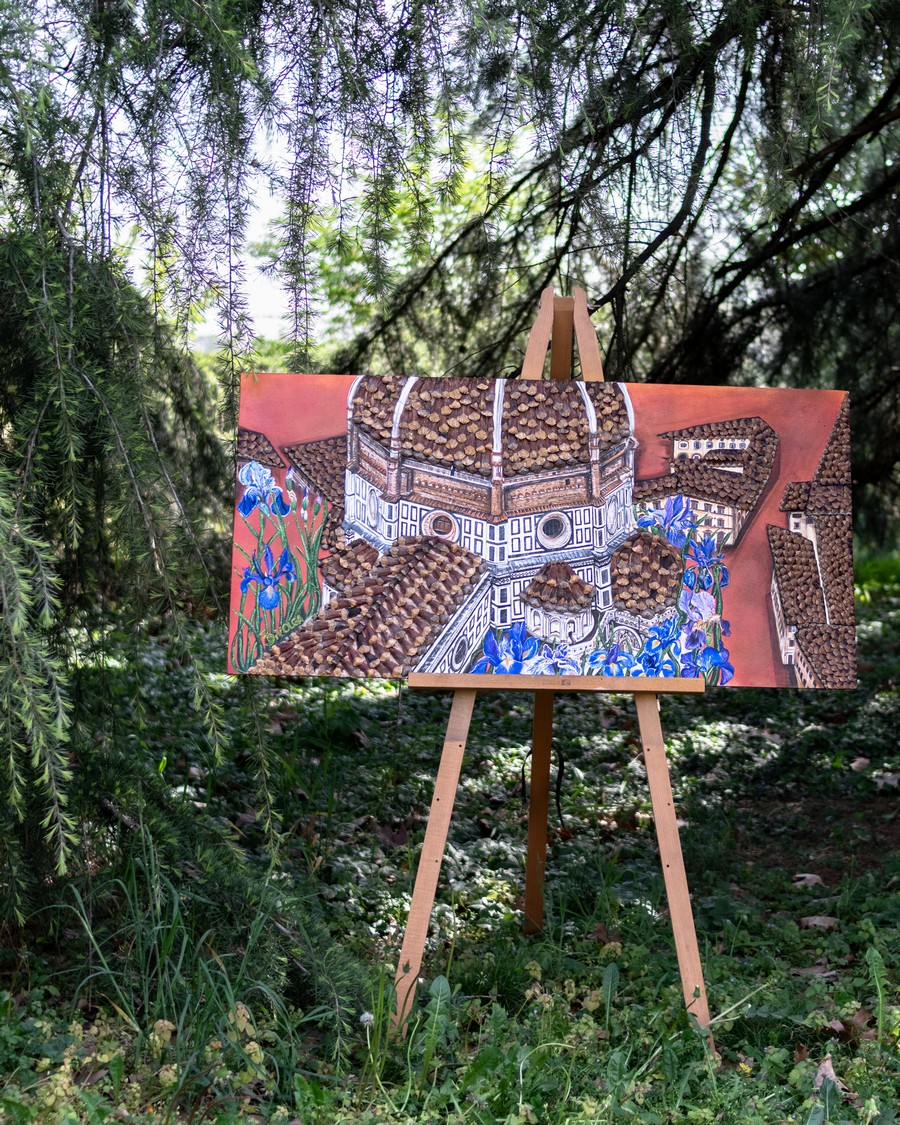Florence
Brunelleschi's Dome in Santa Maria del Fiore Cathedral is the first
thing which comes to your eyes once you are in
Florence. It's like a bright, orange sun making the city revolve
around itself. The dome's shape and solidity remembered
me an upside down cone or the fruit of a conifer. Since the most
ancient times, pines have represented the Universe
and the Sun, life, fertility and spirituality.
Pine cones are amid the most cryptic symbols of ancient arts and
architecture. From Rome to Mesopotamia, it embraces all cultures.
Bringing us back to the Tree of Life in Christian iconography, pines
seem to share the same meaning across different cultures. It
symbolises the pineal gland: the so-called 'third eye', assumed to be
the connection between the human being and the divine.
The figure has had a key-role in the design of candle holders,
ornaments, decoration as well as in Roman architecture.
The Pinecone Courtyard in the Vatican Museums hosts the biggest
existing sculpture representing this iconic symbol.
I used 4 different types of cones: pitch pine, soft pine, stone pine and spruce. The painting leads to the still argued hypothesis about the real nature of the flower in the Florence emblem. It looks like an iris to me; what do you see?
I used 4 different types of cones: pitch pine, soft pine, stone pine and spruce. The painting leads to the still argued hypothesis about the real nature of the flower in the Florence emblem. It looks like an iris to me; what do you see?



